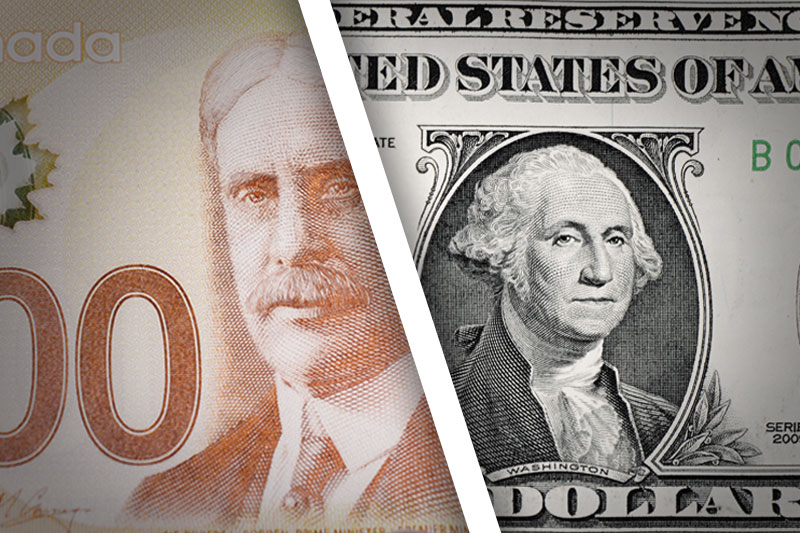Investing.com - The U.S. dollar was little changed against the Canadian dollar on Wednesday after official data showed that U.S. orders for long lasting manufactured goods fell unexpectedly in March.
USD/CAD hit 1.0272 during early U.S. trade, the session high; the pair subsequently consolidated at 1.0258, inching up 0.01%.
The pair was likely to find support at 1.0249, Tuesday’s low and resistance at 1.0284, Tuesday’s high.
The Commerce Department said U.S. durable goods orders dropped 5.7% last month, worse than expectations for a decline of 2.8%.
Durable goods for February were revised down to a 4.3% gain from a previously reported 5.6% increase.
Core durable goods orders, which exclude transportation items, fell 1.4% in March, compared to expectations for a 0.5% increase.
Core durable goods orders for February fell by a downwardly revised 1.7%.
The loonie, as the Canadian dollar is also known, was little changed against the euro, with EUR/CAD edging down 0.08% to 1.3327.
The euro remained under pressure amid mounting speculation over a rate cut by the European Central Bank after a report showed that the Ifo index of German business climate fell to a four month low of 104.4 in April from 106.7 in March.
Analysts had expected the index to tick down to 106.2.
USD/CAD hit 1.0272 during early U.S. trade, the session high; the pair subsequently consolidated at 1.0258, inching up 0.01%.
The pair was likely to find support at 1.0249, Tuesday’s low and resistance at 1.0284, Tuesday’s high.
The Commerce Department said U.S. durable goods orders dropped 5.7% last month, worse than expectations for a decline of 2.8%.
Durable goods for February were revised down to a 4.3% gain from a previously reported 5.6% increase.
Core durable goods orders, which exclude transportation items, fell 1.4% in March, compared to expectations for a 0.5% increase.
Core durable goods orders for February fell by a downwardly revised 1.7%.
The loonie, as the Canadian dollar is also known, was little changed against the euro, with EUR/CAD edging down 0.08% to 1.3327.
The euro remained under pressure amid mounting speculation over a rate cut by the European Central Bank after a report showed that the Ifo index of German business climate fell to a four month low of 104.4 in April from 106.7 in March.
Analysts had expected the index to tick down to 106.2.
